#laura deming
Explore tagged Tumblr posts
Text

Twin Peaks: The Return (2017)
#twin peaks#twin peaks the return#david lynch#cinematography#peter deming#american cinema#laura dern#2010s
151 notes
·
View notes
Photo

Naomi Watts and Laura Harring in Mulholland Dr. (David Lynch, 2001)
Cast: Naomi Watts, Laura Harring, Robert Forster, Brent Briscoe, Patrick Fischler, Ann Miller, Angelo Badalamenti, Dan Hedaya, Justin Theroux, Mark Pellegrino, Billy Ray Cyrus, Lee Grant, Chad Everett. Screenplay: David Lynch. Cinematography: Peter Deming. Production design: Jack Fisk. Film editing: Mary Sweeney. Music: Angelo Badalamenti.
Mulholland Dr. defies exegesis like no other film I know. Sure, you can trace its origins: Car-crash amnesia is a soap-opera trope; the mysterious mobsters and other manipulators are film noir staples; the portrayal of Hollywood as a nightmare dreamland is straight from Sunset Blvd. (Billy Wilder, 1950), which the film even imitates by having its before-the-credits title appear on a street sign. But writer-director David Lynch isn't out to parody the sources -- not entirely, anyway. What he is up to is harder to pinpoint. There's a part of me that thinks Lynch just wants to have fun -- a nasty kind of fun -- manipulating our responses. At the beginning, we're on to him in that regard: We laugh at the minimal conversation between the two detectives (Robert Forster and Brent Briscoe) at the crash site. We recognize the naive awe on the face of Betty Elms (Naomi Watts), as she arrives in Los Angeles, as a throwback to the old Hollywood musicals in which choruses of hopefuls arrive at the L.A. train station singing "Hooray for Hollywood!" (Has anyone ever been inspired to sing and dance when arriving at LAX?) We're delighted by the appearance of Ann Miller as the landlady, just as later we identify Lee Grant, Chad Everett, and even Billy Ray Cyrus in their cameos. Even the seemingly disjointed scenes -- the director, Adam Kesher (Justin Theroux), is bullied by the Castiglianes (Dan Hedaya and the film's composer, Angelo Badalamenti), or a man (Patrick Fischler) recounts his nightmare at a restaurant called Winkie's, or a hit man (Mark Pellegrino) murders three people -- are standard thriller stuff, designed to keep us guessing -- though at that point, having seen this sort of thing in films by Quentin Tarantino and others, we feel confident that everything will fit together. And then, suddenly, it doesn't. Betty vanishes and Diane Selwyn (Watts), whom we have thought dead, is alive. The amnesia victim known as Rita (Laura Harring) is now Camilla Rhodes, the movie star that Betty wanted to be, and Diane, Camilla's former lover, wants to kill her. It's such a complete overthrow of conventional narrative that there are really only two basic responses, neither of them quite sufficient: One is to dismiss the film as a wacked-out experiment in playing with the audience -- "a load of moronic and incoherent garbage," in the words of Rex Reed -- or to try to assimilate it into some coherent and consistent scheme, like the theory that the first two-thirds of the film are the disillusioned Diane Selwyn's dream-fantasy of what her life might have been as the fresh and talented Betty. There is truth in both extremes: Lynch is playing with the audience, and he is portraying Los Angeles as a land of dreamers. But his film will never be forced into coherence, and it can't be entirely dismissed. I think it is some kind of great film -- the Sight & Sound critics poll in 2022 ranked it at No. 8 in the list of the greatest films of all time, up from No. 28 in 2012 -- but I also think it's self-indulgent and something of a dead end when it comes to narrative filmmaking. It has moments of sheer brilliance, including a performance by Watts that is superb, but they are moments in a somewhat annoying whole.
6 notes
·
View notes
Text
Twin Peaks The Return (2017)
Created by David Lynch and Mark Frost
Cinematography by Peter Deming
Starring Kyle MacLachlan, Sheryl Lee, Laura Dern, Amanda Seyfried and Robert Forster

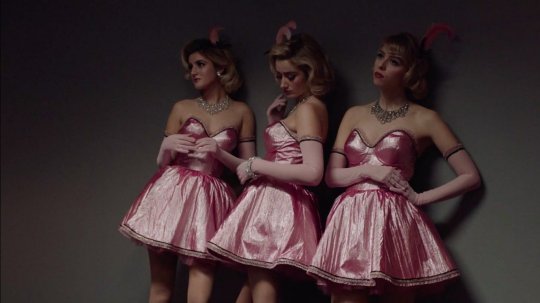
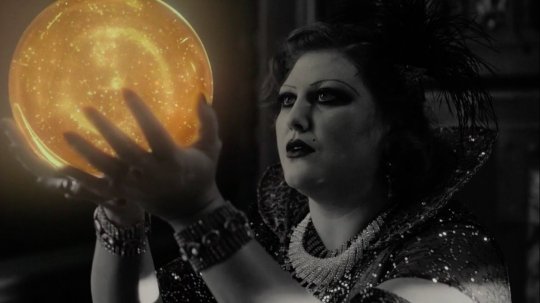
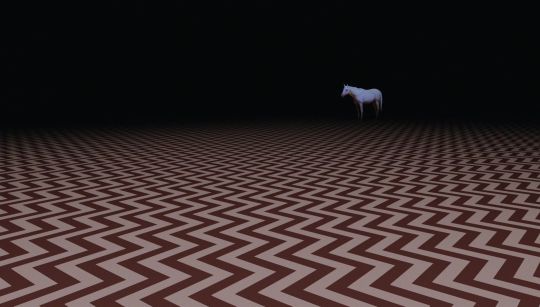
"We are like the dreamer who dreams, and then lives inside the dream. But who is the dreamer ?"
3 notes
·
View notes
Text

#ProyeccionDeVida
🎬 “MULHOLLAND DRIVE” [Sueños, Misterios y Secretos / Mulholland Dr.]
🔎 Género: Intriga / Drama / Romance / Thriller Psicológico / Surrealismo / Homosexualidad / Cine dentro del Cine / Película de Culto / Cine Independiente USA

⌛️ Duración: 147 minutos
✍️ Guión: David Lynch

🎼 Música: Angelo Badalamenti
📷 Fotografía: Peter Deming

🗯 Argumento: Betty Elms (Naomi Watts), una joven aspirante a actriz, llega a Los Ángeles para convertirse en estrella de cine y se aloja en el apartamento de su tía. Allí conoce a la enigmática Rita (Laura Harring), una mujer que padece amnesia a causa de un accidente sufrido en Mulholland Drive. Las dos juntas deciden investigar quién es Rita y cómo llegó hasta allí.

👥 Reparto: Naomi Watts (Diane Selwyn / Betty Elms), Laura Harring (Camilla Rhodes #1 / Rita), Justin Theroux (Adam Kesher), Billy Ray Cyrus (Gene), Melissa George (Camilla Rhodes), Ann Miller (Catherine "Coco" Lenoix), Angelo Badalamenti (Luigi Castigliane), Scott Coffey (Wilkins) y Lee Grant (Louise Bonner).

📢 Dirección: David Lynch
© Productoras: Les Films Alain Sarde & Asymetrical Production.
🌎 Países: Estados Unidos-Francia
📅 Año: 2001

📽 PROYECCIÓN:
📆 Martes 19 de Noviembre
🕗 8:00pm.
🎦 Cine Caleta (calle Aurelio de Souza 225 - Barranco)
🚶♀️🚶♂️ Ingreso libre

🙂 A tener en cuenta: Prohibido el ingreso de bebidas y comidas. 🌳💚🌻🌛
0 notes
Text
2024 olympics Germany roster
Archery
Florian Unruh (Rendsburg)
Katharina Bauer (Berlin)
Michelle Kroppen (Kevelaer)
Charline Schwarz (Nürnberg)
Athletics
Velten Schneider (Leonberg)
Yannick Wolf (Munich)
Owen Ansah (Hamburg)
Joshua Hartmann (Siegen)
Jean Bredau (Potsdam)
Robert Farken (Leipzig)
Marius Probst (Herne)
Manuel Mordi (Hamburg)
Joshua Abuaku (Oberhausen)
Emil Agyekum (Berlin)
Constantin Preis (Munich)
Karl Bebendorf (Dresden)
Frederik Ruppert (Aachen)
Lucas Ansah-Peprah (Stuttgart)
Kevin Kranz (Frankfurt)
Marc Koch (Berlin)
Manuel Sanders (Duelman)
Samuel Fitwi-Sibhatu (Stadtkyll)
Amanal Petros (Nürnberg)
Richard Ringer (Überlingen)
Leo Köpp (Konstanz)
Christopher Linke (Potsdam)
Tobias Potye (Munich)
Bo Lita-Baehre (Düsseldorf)
Torben Blech (Siegen)
Oleg Zernikel (Landau)
Simon Batz (Offendorf)
Max Hess (Chemnitz)
Henrik Janssen (Norden)
Clemens Prüfer (Potsdam)
Miká Sosna (Hamburg)
Max Dehning (Leverkusen)
Julian Weber (Mainz)
Merlin Hummel (Kronach)
Sören Klose (Porta Westfalica)
Mona Mayer (Munich)
Skadi Schier (Lübben)
Domenika Mayer (Böblingen)
Rebekka Haase (Zschopau)
Gina Lückenkemper (Hamm)
Majtie Kolberg (Ahrweiler)
Nele Wessel (Annaberg-Buchholz)
Hanna Klein (Landau In Der Pfalz)
Carolina Krafzik (Niefern-Öschelbronn)
Olivia Gürth (Diez)
Gesa Krause (Ehringshausen)
Lea Meyer (Löningen)
Alexandra Burghardt (Mühldorf Am Inn)
Sophia Junk (Trier)
Lisa Mayer (Giessen)
Eileen Demes (Neu-Isenburg)
Alicia Schmidt (Ingolstadt)
Laura Hottenrott (Heilbad Heiligenstadt)
Melat Kejeta (Baunatal)
Saskia Feige (Potsdam)
Christina Honsel (Dorsten)
Imke Onnen (Langenhagen)
Anjuli Knäsche (Preetz)
Mikaelle Assani (Pforzheim)
Malaika Mihambo (Heidelberg)
Laura Müller (Verrenberg)
Alina Kenzel (Konstanz)
Katharina Maisch (Bad Urach)
Yemisi Ogunleye (Bellheim)
Kristin Pudenz (Herford)
Marike Steinacker (Wermelskirchen)
Claudine Vita (Frankfurt)
Christin Hussong (Zweibrücken)
Till Steinforth (Magdeburg)
Niklas Kaul (Mainz)
Leo Neugebauer (Stuttgart)
Carolin Schäfer (Bad Wildungen)
Sophie Weissenberg (Neubrandenburg)
Badminton
Fabian Roth (Saarbrücken)
Max Lamsfuss (Saarbrücken)
Marvin Seidel (St. Ingbert)
Yvonne Li (Mülheim An Der Ruhr)
Basketball
Isaac Bonga (Neuwid)
Oscar Da Silva (Munich)
Maodo Lô (Berlin)
Niels Giffey (Berlin)
Nick Weiler-Babb (Arlington, Texas)
Johannes Voigtmann (Eisenach)
Franz Wagner (Berlin)
Victor Wagner (Berlin)
Daniel Theis (Salzgitter)
Dennis Schröder (Braunschwieg)
Johannes Thiemann (Trier)
Andreas Obst (Halle)
Satou Sabally (Freiburg Im Breisgau)
Nyara Sabally (Freiburg Im Breisgau)
Alexis Peterson (Columbus, Ohio)
Alexandra Wilke (Berlin)
Marie Gülich (Altenkirchen)
Leonie Fiebich (Landserg Am Lech)
Luisa Geiselsöder (Ansbach)
Alina Hartmann (Bamberg)
Frieda Bühner (Georgsmarienhütte)
Emily Bessoir (Berlin)
Lina Sontag (Kleinmachnow)
Romy Bär (Chemnitz)
Svejna Brunckhorst (Berlin)
Sonja Greinacher (Essen)
Elisa Mevius (Rendsburg)
Stella Reichert (Kassel)
Boxing
Magomed Schachidov (Munich)
Nelvie Tiafack (Cologne)
Maxine Kloetzer (Chemnitz)
Canoeing
Sideris Tasiadis (Augsburg)
Noah Hegge (Augsburg)
Stefan Hengst (Hamm)
Jakob Thordsen (Hamburg)
Anton Winkelmann (Berlin)
Max Lemke (Heppelheim)
Jacob Schopf (Potsdam)
Tom Liebscher-Lucz (Dresden)
Max Rendschmidt (Bonn)
Sebastian Brendel (Schwedt)
Tim Hecker (Berlin)
Peter Kretschmer (Schwerin)
Enja Roesseling (Berlin)
Maike Jakob (Magdeburg)
Hedi Kliemke (Haldensleben)
Elena Lillik (Weimar)
Ricarda Funk (Bad Neuenahr-Ahrweiler)
Jule Hake (Olfen)
Paulina Paszek (Munich)
Pauline Jagsch (Berlin)
Lisa Jahn (Berlin)
Climbing
Yannick Flohé (Essen)
Alexander Megos (Erlangen)
Lucia Dörffel (Chemnitz)
Cycling
Philip Schaub (Ludwigsburg)
Nils Politt (Cologne)
Max Schachmann (Berlin)
Maximilian Dörnbach (Heilbad Heiligenstadt)
Luca Spiegel (Kaiserslautern)
Stefan Bötticher (Leinefelde-Worbis)
Tobias Buck-Gramcko (Göttingen)
Roger Kluge (Eisenhüttenstadt)
Theo Reinhardt (Berlin)
Tim Teutenberg (Mettmann)
Julian Schelb (Breisach)
Luca Schwarzbauer (Nürtingen)
Alina Beck (Garmisch-Partenkirchen)
Franziska Koch (Mettmann)
Liane Lippert (Friedrichshafen)
Antonia Nidermaier (Bruckmühl)
Mieke Kröger (Bielefeld)
Lea Friedrich (Dassow)
Emma Hinze (Hildesheim)
Pauline Grabosch (Magdeburg)
Franziska Brausse (Metzingen)
Lisa Klein (Saarbrücken)
Laura Süssemilch (Weingarten)
Lena Reissner (Gera)
Nina Graf (Berlin)
Kim Müller (Remscheld)
Diving
Lars Rüdiger (Berlin)
Moritz Wesemann (Halle)
Timo Bartel (Würselen)
Jaden Eichermann-Gregorchuk (Munich)
Saskia Oettinghaus (Rostock)
Pauline Pfeif (Berlin)
Jette Müller (Rostock)
Lena Hentschel (Berlin)
Christina Wassen (Eschweiler)
Equestrian
Frederic Wandres (Kehl)
Michael Jung (Bad Soden)
Christoph Wahler (Uelzen)
Philipp Weishaupt (Augsburg)
Christian Kukuk (Warendorf)
Richard Vogel (Mannheim)
Jessica Von Bredow-Werndl (Rosenheim)
Isabell Wurth (Issum)
Julia Krajewski (Langenhagen)
Fencing
Szabó Mátyás (Dormagen)
Anne Sauer (Bonn)
Field hockey
Mathias Müller (Hamburg)
Mats Grambusch (Mönchengladbach)
Tom Grambusch (Mönchengladbach)
Lukas Windfeder (Mülheim An Der Ruhr)
Niklas Wellen (Krefeld)
Johannes Grosse (Berlin)
Thies Prinz (Berlin)
Paul-Philipp Kaufmann (Mannheim)
Teo Hinrichs (Mannheim)
Gonzalo Peillat (Mannheim)
Jan Rühr (Düsseldorf)
Justus Weigand (Nürnberg)
Marco Miltkau (Hamburg)
Martin Zwicker (Köthen)
Hannes Müller (Köthen)
Malte Hellwig (Mülheim An Der Ruhr)
Moritz Ludwig (Berlin)
Jean-Paul Danneberg (Cologne)
Alexander Stadler (Heidelberg)
Emma Davidsmeyer (Bremen)
Kira Horn (Hamburg)
Amelie Wortmann (Hamburg)
Nike Lorenz (Berlin)
Selin Oruz (Krefeld)
Benedetta Wenzel (Berlin)
Anne Schröder (Düsseldorf)
Lisa Nolte (Düsseldorf)
Lena Micheel (Berlin)
Charlotte Stapenhorst (Berlin)
Nathalie Kubalski (Dinslaken)
Sonja Zimmermann (Grünstadt)
Cécile Pieper (Heidelberg)
Viktoria Huse (Braunschweig)
Felicia Wiedermann (Hamburg)
Stine Kurz (Stuttgart)
Jette Fleschütz (Hamburg)
Linnea Weidemann (Berlin)
Golf
Stephan Jäger (Chattanooga, Tennessee)
Matthias Schmid (Regensberg)
Esther Henseleit (Hamburg)
Lexi Försterling (Berlin)
Gymnastics
Pascal Brendel (Hochtaunuskreis)
Lukas Dauser (Ebersberg)
Nils Dunkel (Berlin)
Timo Eder (Ludwigsburg)
Andreas Toba (Hanover)
Fabian Vogel (Düsseldorf)
Helen Kevrić (Stuttgart)
Pauline Schäfer-Bach (Chemnitz)
Sarah Voss (Dormagen)
Magarita Kolosov (Fellbach-Schmiden)
Darja Varfolomeev (Fellbach-Schmiden)
Anja Kosan (Fellbach-Schmiden)
Daniella Kromm (Fellbach-Schmiden)
Alina Oganesyan (Fellbach-Schmiden)
Hannah Vester (Zornheim)
Emilia Wickert (Ulm)
Handball
David Späth (Kaiserslautern)
Johannes Golla (Weisbaden)
Luca Witzke (Kempen)
Sebastian Heymann (Heilbronn)
Justus Fischer (Hanover)
Juri Knorr (Flensburg)
Julian Köster (Bielefeld)
Renārs Uščins (Magdeburg)
Kai Häfner (Schwäbisch Gmünd)
Tim Hornke (Hanover)
Andreas Wolff (Euskirchen)
Rune Dahmke (Kiel)
Lukas Mertens (Wilhelmshaven)
Christoph Steinert (Berlin)
Marko Grgić (Eisenach)
Jannik Kohlbacher (Bensheim)
Alina Grijseels (Wesel)
Meike Schmelzer (Weisbaden)
Lisa Antl (Ingolstadt)
Xenia Smits (Antwerp, Belgium)
Emily Bölk (Buxtehude)
Annika Lott (Henstedt-Ulzburg)
Sarah Wachter (Berlin)
Julia Maidhof (Aschaffenburg)
Antje Döll (Haldensleben)
Jenny Behrend (Rendsburg)
Katharina Filter (Hamburg)
Viola Leuchter (Hamburg)
Julia Behnke (Mannheim)
Johanna Stockschläder (Siegen)
Judo
Timo Cavelius (Munich)
Erik Abramov (Potsdam)
Igor Wandtke (Lübeck)
Eduard Trippel (Rüsselsheim Am Main)
Katharina Menz (Backnang)
Mascha Ballhaus (Hamburg)
Pauline Starke (Nürnberg)
Miriam Butkereit (Hamburg)
Anna-Maria Wagner (Ravensburg)
Renée Lucht (Hamburg)
Pentathlon
Marvin Dogue (Ludwigshafen Am Rhein)
Fabian Liebig (Berlin)
Rebecca Langrehr (Berlin)
Annika Zillekens (Berlin)
Rowing
Jonas Gelsen (Frankfurt)
Anton Finger (Berlin)
Moritz Wolff (Berlin)
Julius Christ (Leverkusen)
Sönke Kruse (Leipzig)
Frederik Breuer (Bonn)
Benedict Eggeling (Eschwege)
Max John (Malchin)
Mattes Schönherr (Berlin)
Wolf-Niclas Schroeder (Wismar)
Oliver Zeidler (Dachau)
Marc Weber (Lich)
Max Appel (Ratzeburg)
Tim Naske (Hamburg)
Laurits Follert (Duisburg)
Torben Johannesen (Hamburg)
Olaf Roggensack (Berlin)
Jonas Wiesen (Koblenz)
Alexandra Föster (Meschede)
Pia Greiten (Ostercappeln)
Leonie Menzel (Mettmann)
Tabea Schendekehl (Lünen)
Maren Völz (Schenkenberg)
Sailing
Sebastian Kördel (Radolfzell)
Jannis Maus (Oldenburg)
Jakob Meggendorfer (Rosenheim)
Andreas Spranger (Mühldorf Am Inn)
Simon Diesch (Tettnang)
Philipp Buhl (Immenstadt Am Allgäu)
Paul Kohlhoff (Bremen)
Theresa Steinlein (Starnberg)
Julia Büsselberg (Berlin)
Marla Bergmann (Hamburg)
Hanna Wille (Hamburg)
Anna Markfort (Berlin)
Leonie Meyer (Kiel)
Alica Stuhlemmer (Kiel)
Shooting
Maximilian Ulbrich (Berlin)
Robin Walter (Berlin)
Sven Korte (Berlin)
Christian Reitz (Löbau)
Florian Peter (Berlin)
Anna Janssen (Berlin)
Josefin Eder (Berlin)
Kathrin Murche (Elsnig)
Lisa Müller (Weingarten)
Joslyn Beer (Goslar)
Doreen Vennekamp (Gelnhausen)
Nadine Messerschmidt (Suhl)
Nele Wissmer (Hanover)
Skateboarding
Tyler Edtmayer (Lenggries)
Lilly Stoephasius (Berlin)
Soccer
Merle Frohms (Celle)
Sarai Linder (Sinsheim)
Kathrin Hendrich (Eupen, Belgium)
Bibi Schulze (Bad Soden)
Marina Hegering (Bocholt)
Janina Minge (Lindau)
Lea Schüller (Tönisvorst)
Sydney Lohmann (Pürgen)
Sjoeke Nüsken (Hamm)
Laura Freigang (Kiel)
Alexandra Popp-Höppe (Gelsenkirchen)
Ann-Katrin Berger (Göppingen)
Sara Doursoun-Khajeh (Cologne)
Elisa Senss (Oldenburg)
Giulia Gwinn (Tettnang)
Jule Brand (Germersheim)
Klara Bühl (Hassfurt)
Vivien Endemann (Oldenburg)
Felicitas Rauch (Peine)
Etonam-Nicole Anyomi (Krefeld)
Surfing
Tim Elter (Berlin)
Camilla Kemp (Cascais, Portugal)
Swimming
Artem Selin (Krasnoyarsk, Russia)
Luca Armbruster (Essen)
Peter Varjasi (Erlangen)
Timo Sorgius (Saarbrücken)
Josha Salchow (Troisdorf)
Lukas Märtens (Magdeburg)
Rafael Miroslaw (Bloomington, Indiana)
Oliver Klemet (Frankfurt)
Sven Schwarz (Hanover)
Florian Wellbrock (Bremen)
Ole Braunschweig (Berlin)
Marek Ulrich (Dessau)
Kaii Winkler (Miami, Florida)
Melvin Imoudu (Schwedt)
Leonie Märtens (Magdeburg)
Nicole Maier (Bottrup)
Nele Schulze (Berlin)
Nina Holt (Erkelenz)
Julia Mrozinski (Hamburg)
Isabel Gose (Berlin)
Anna Elendt (Dreieich)
Angelina Köhler (Dernbach)
Laura Riedemann (Halle)
Leonie Beck (Augsburg)
Table tennis
Dimitrij Ovtcharov (Düsseldorf)
Qiu Dang (Nürtingen)
Timo Boll (Erbach)
Annett Kaufmann (Wolfsburg)
Nina Mittelham (Willich)
Xiaona Shan (Düsseldorf)
Wan Yuan (Berlin)
Taekwondo
Lorena Brandl (Pförring)
Tennis
Dominik Koepfer (Tampa, Florida)
Maximilian Marterer (Stein)
Jan-Lennard Struff (Warstein)
Alexander Zverev; Jr. (Monte Carlo, Monaco)
Kevin Krawietz (Munich)
Tim Pütz (Usingen)
Angelique Kerber (Puszczykowo, Poland)
Tamara Korpatsch (Hamburg)
Tatjana Maria (Bad Saulgau)
Laura Siegemund (Stuttgart)
Triathlon
Tim Hellwig (Neustadt An Der Weinstrasse)
Lasse Lührs (Wingst)
Jonas Schomburg (Hanover)
Nina Eim (Itzehoe)
Laura Lindemann (Berlin)
Lisa Tertsch (Offenbach Am Main)
Volleyball
Nils Ehlers (Berlin)
Clemens Wickler (Starnberg)
Christian Fromm (Berlin)
Moritz Reichert (Dudweiler)
Johannes Tille (Mühldorf Am Inn)
Grozer György; Jr. (Budapest, Hungary)
Julian Zenger (Wangen Im Allgäu)
Lukas Kampa (Bochum)
Anton Brehme (Leipzig)
Anton Schott (Berlin)
Moritz Karlitzek (Hammelburg)
Tobias Krick (Bingem Am Rhein)
Tobias Brand (Mainz)
Lukas Maase (Dresden)
Svenja Müller (Hamburg)
Cinja Tillmann (Hamburg)
Laura Ludwig-Bowes (Berlin)
Louisa-Christin Lippmann (Herford)
Wrestling
Erik Thiele (Berlin)
Lucas Lazogianis (Stuttgart)
Jello Krahmer (Lorch)
Anastasia Blayvas (Halle)
Annika Wendle (Lahr)
Sandra Paruszewski (Stuttgart)
Luisa Niemesch (Karlsruhe)
#Sports#National Teams#Germany#Celebrities#Races#Basketball#Texas#Ohio#Fights#Boxing#Boats#Animals#Hockey#Golf#Tennessee#Belgium#Soccer#Portugal#Russia#Indiana#Florida#Tennis#Monaco#Poland#Hungary
0 notes
Text
damnation follows any attempt to recover paradise
A while ago, I read Mark O’Connell’s 2017 book To Be a Machine, in which he investigates the transhumanist project of achieving a merger of the body and technology that allows the body to live forever—and, essentially and paradoxically, to fall away, to become a nonfactor, so you can experience yourself as pure consciousness. It’s like, if the average human wavers in the Cartesian split between mind and body, uncertain, transhumanists break the impasse by betting firmly on mind.
The book is thoughtfully constructed. All the major transhumanist figures you hear about appear: Ray Kurzweil, Aubrey de Grey, Zoltan Istvan, Peter Thiel, Nick Bostrom. And O’Connell covers many facets of the transhumanist movement. He discusses life extension and cryonics; “whole brain emulation,” or the creation of a mind independent of any corporeal “substrate,” like the brain, which could feasibly be downloaded into any number of different bodies or substrates altogether; the possibility of artificial ultraintelligence, and the corresponding activism in the face of the existential risk such AI poses to humanity; the augmentation of the human body, as pursued by corporations and the state and military and as pursued by the laypeople and amateur biohackers known as “grinders”; and the idea that we could within our lifetimes reach “longevity escape velocity”—the magical point at which the science of life extension has advanced far enough that it’s easy to access and take advantage of and the relationship between how old you are and how likely you are to die becomes irrelevant.
It’s all shot through with a few major themes. One is the battle transhumanists wage versus “deathism,” their term for what they believe their critics suffer from, namely a need to protect yourself from death by trying to convince yourself it isn’t terrible. And two, transhumanism as but the latest incarnation of an age-old religious impulse: the desire for transcendence and eternal life—now, through technology, as before through religion.
I had such strong feelings of anger and contempt for the transhumanists after reading it, though. Maybe I’m guilty of being “deathist”: perhaps I mask my terror of death by pretending I’m okay with the fact that I’ll experience it. It’s certainly true I haven’t confronted death as closely as, say, Roen Horn—a young man who accompanies Zoltan Istvan in his campaign bus as his assistant during Istvan’s bid for the 2016 presidential nomination as the Transhumanist Party candidate, who came to transhumanism after a terrible childhood accident made him nearly bleed out. And it’s a clever move on O’Connell’s part to characterize Horn as he does. Initially, Horn seems a textbook incel type—being twenty-eight and so convinced a woman would cheat on him that he’s never pursued a relationship. But then O’Connell reveals the fact of the accident and the “darkness” it reveals to Horn, the “black terror beneath the thin surface of the world,” and that makes you realize why Horn is frightened by death as he is. It’s harder to dismiss him after that.
Transhumanism often seems the result of such extreme near-death experience. Tim Cannon, one of the grinders O’Connell writes about, had experiences of addiction that reduced his lived condition to its animal essence—making him beholden to his body, all urge and impulse beyond his own conscious control—in ways that left him desperate to hack it and transcend it. And Laura Deming, founder of the Longevity Fund, a VC firm focused on life extension technology—and all of twenty years old when O’Connell speaks to her—reports being rattled to her core by watching her grandmother die. The experience brought her to understand there’s a bodily decay in store for her and everyone she knows that she can do nothing to stop. And it leaves her obsessed with extending the human lifespan as the “correct” thing to do.
But it's only children who fear death in as total and paranoid a fashion as Deming or Cannon seem to. And at some point, children grow up. They become adults. They come to understand death as an inevitability, even if that’s only in the abstract. They come to realize it’s death that gives the time we are alive its meaning. They don’t need to denigrate the human body by sneering that people are mere “monkeys,” as Cannon does. They don’t live in atavistic terror of aging as do Deming or Aubrey de Grey (who leads the transhumanist group SENS, or Strategies for Engineered Negligible Senescence). And they devote their time and attention to curing the ills that plague the world now, rather than fixing their eyes on projects like defeating death. Or creating colonies in outer space—which seems driven by a similarly childish zeal on the parts of people like Peter Thiel, if one that’s less terrified—and bringing on the Singularity, the point, predicted by futurist Ray Kurzweil, at which the merger between humans and technology becomes so complete that technology’s evolution entirely supersedes human evolution.
“To the charge,” O’Connell writes, “that such a merger” between human and machine “would obliterate our humanity, Kurzweil counters that the Singularity is in fact a final achievement of the human project, an ultimate vindication of the very quality that has always defined and distinguished us as a species—our constant yearning for a transcendence of our physical and mental limitations.” When I read those lines, I wanted to yell at Kurzweil: The yearning to transcend our physical and mental imitations is not meant to be fulfilled! I remember scribbling that line in my notebook on the train home from work just as I heard a man in the seats across from mine telling his seatmate about the intense cancer treatments he was going through. And that’s bravery to me. That’s what I admire: the ability to face the fact of the body’s fragility, rather than looking to obliterate it.
Sometimes I found myself thinking that the transhumanists, driven by greed (to experience, to colonize) and fear (of death, so childish in its intensity) were deformed people. I know this isn’t a good word to use. But I wasn’t a good person I was reading this book. I could feel my heart turn in revulsion as I encountered all these people who treated being alive, finite, human as a problem to be solved. The chapter on the grinders, “Biology and Its Discontents,” was particularly trying. When O’Connell reveals that Tim Cannon, deep in his alcoholism and spiraling, had once tried to kill himself, for a vicious instant I thought, If only he had succeeded. I just couldn’t take his sneering contempt—his saying, so often, things like, “People want to stay being the monkeys they are. They don’t like to acknowledge that their brains aren’t giving them the full picture, aren’t allowing them to make rational choices. They think they’re in control, but they’re not.”
There’s this moral superiority there. This assumption that you’re better than other people; other people are idiots, and you alone are stripped of illusion. I hate that—that loathing for your fellow man’s fallibilities as though you yourself have none. I hate that more than anything.
What’s more, I hate the apparent lack of regard for consequences on the part of so many transhumanists. In her book Being Numerous, Natasha Lennard writes about Paul Virilio’s notion of the “accident”: that “which is contained within, and brought into the world by, the inventions of progress […] itself.” In other words, when you invent a plane, the possibility of a plane crash follows. Often the transhumanists seem entirely unconscious of the possibilities their tech is bringing into existence. That’s simply outside the scope of their narrow remit. When Randal Koene, who runs the whole brain emulation organization Carboncopies, is confronted with the possibility that the downloading of minds to different substrates might unlock an entirely new level of invasive advertising, he basically shrugs it off. In that, he’s like just about everyone O’Connell talks to, every tech billionaire and devotee of any renown in our horrible historical moment: in love with the possibilities, unconcerned with the consequences.
Just because the possibility of developing a certain type of technology is there doesn’t mean it needs to be done. Where is the restraint? Maybe that’s longer a virtue in a late capitalist society, after the end of history, in a time when we don’t have any overarching societal narrative that would make restraint something to want to practice or that would make some notion of the human something we want to consider before we eradicate it. In this world we live in, everyone, atomized, pursues their own ends. What you want, what’s possible, and what you have the means to make possible are the only standards by which a decision to act is made.
Most of the transhumanists are frighteningly cavalier, to the layperson of a humanist bent like me, about the stages of the revolution they foresee. Ray Kurzweil, for one, talks about the trajectory he’d like to see so casually. “What would be a nice scenario is that we first get smart drugs and wearable technologies. And then life extension technologies. And then, finally, we get uploaded, and colonize space and so on.” And so on. Again, reading that line, I wanted to yell: Nothing entitles you to space! Have we not learned not to colonize?
It all speaks to the experience of reading To Be a Machine, which is this kind of Mobius strip of revulsion (“hell no”) and relenting (“I mean, maybe” or “well I guess” or “am I the problem here?”). At one point, O’Connell drops a quote from D. H. Lawrence: “science and machinery, radio, airplanes, vast ships, zeppelins, poison gas, artificial silk: these things nourish man’s sense of the miraculous as magic did in the past.” And it’s like “miraculous” is one side of a coin whose other side is “horrifying,” and O’Connell spends the entire book flipping that coin as he talks impartially about the transhumanist movement, showing you first one face of it and then the other.
It's a credit to O'Connell that he could stay as evenhanded as he is reporting on these people. I even came to dislike his repeated tendency to express fond, largely tolerant and even feelings toward people who sounded as inhuman and afraid of life as Roen Horn did. Maybe I was disappointed I couldn't be as gracious as he was even though I like to consider myself a kind person who's inclined to empathy.
Or more likely it’s because I lack O’Connell’s proximity to religion. Ultimately, his ethos of impartiality comes from being able to so clearly see the parallels between transhumanist and religious desire. This is a parallel that I, not being a religious person at all, having no real religious instinct, would never have felt so intuitively or described so convincingly. It leads O’Connell to afford the transhumanists the same respect he would the devotees of any other religion. As he’s listening to Tim Cannon share his vision of eventually being not a body but simply a “series of nodes” peacefully exploring the universe for all time, he writes
I was going to say that all of this sounded hugely expensive; I was going to ask who was going to pay for it all. But I thought better of it, in the way that you might think better of making a joke about the central tenets of a person’s faith after they had taken the trouble to explain them to you.
And transhumanism is ultimately a faith: a contemporary reflection of the ancient desire to be delivered of the body, redeemed of its weakness and sin, no longer subject to its curse. The Singularity—however that is defined, whatever particular perfect union between human and machine a particular transhumanist aims for—is the Rapture. The world after this Singularity, affording as it does answers to all scientific questions and cures for all diseases, will be Eden.
And everyone in this book believes themselves to be among the elect.
And if, as the transhumanists believe, humans are effectively computers, in the way their minds operate—just with substrates made of meat—it’s also the destiny of obsolete technology to die. And so it is just for humans to wipe themselves out to usher in cyborgs and AI and superintelligence. It’s just technology, drawing all the way from the first spear a human being ever threw, achieving its teleological end.
But—as O’Connell also points out, the attempts religion has made to make good on its own teleological narratives tell us that damnation always follows any human attempt to recover paradise.
#books#literary#nonfiction#mark o'connell#ray kurzweil#aubrey grey#laura deming#tim cannon#zoltan istvan#peter thiel#transhumanism#the singularity#the end of history
0 notes
Video
youtube
Mulholland Drive par Johanna Vaude - Blow Up - ARTE
http://www.arte.tv/blow-up
#david lynch#johanna vaude#arte#blow up#video#ghost#peter deming#angelo badalamenti#laura elena harring#naomi watts#justin theroux#robert forster#alain sarde#billy ray cyrus#Asymetrical Production#2001#2000s#Camera Lucida#mulholland drive
4 notes
·
View notes
Photo
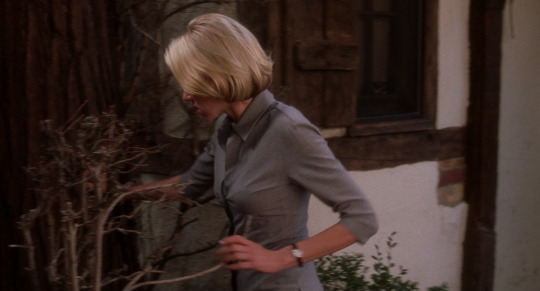
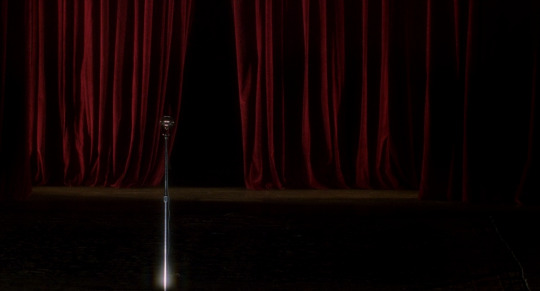
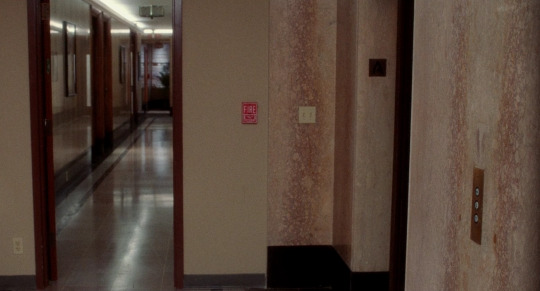
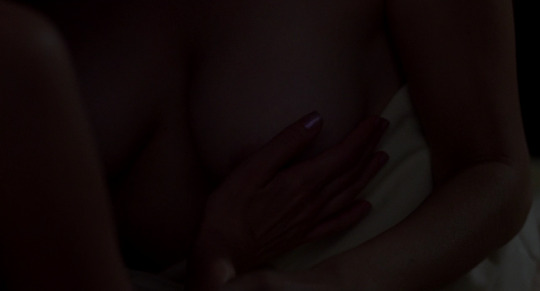
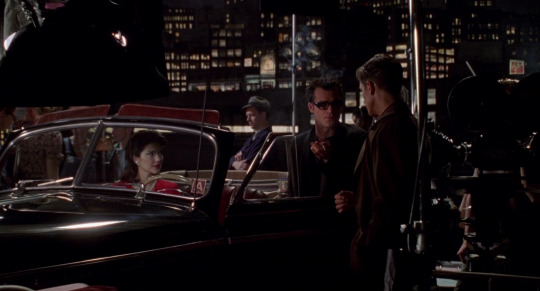
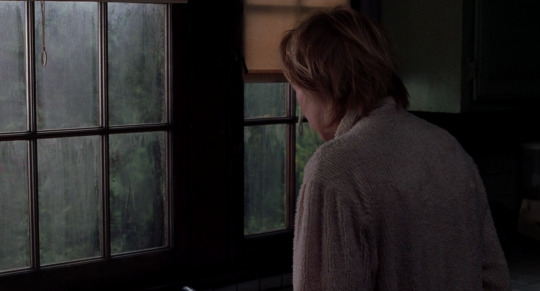
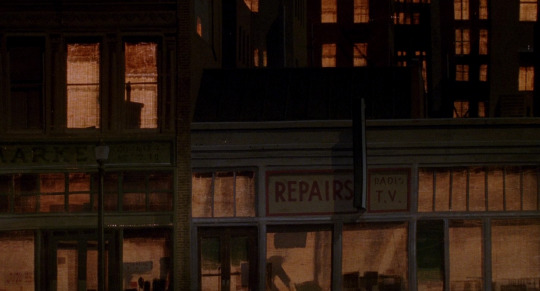
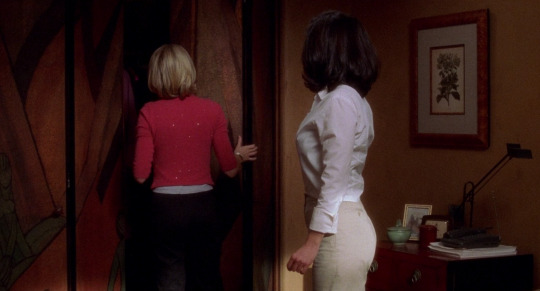
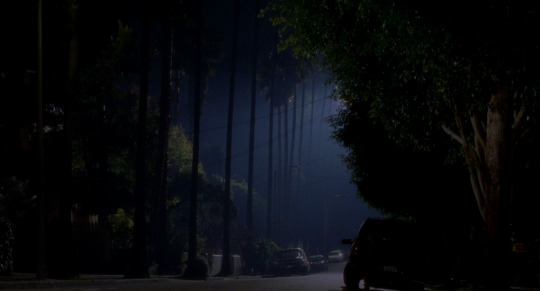
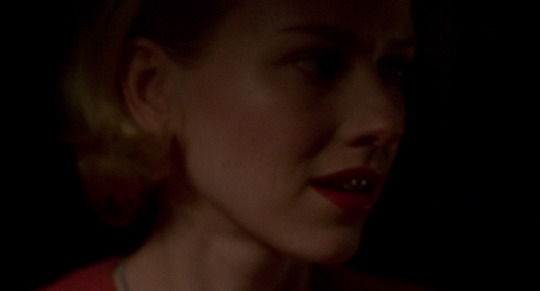
mulholland drive (david lynch, 2001)
377 notes
·
View notes
Text
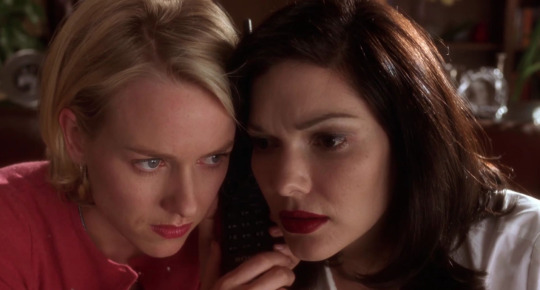

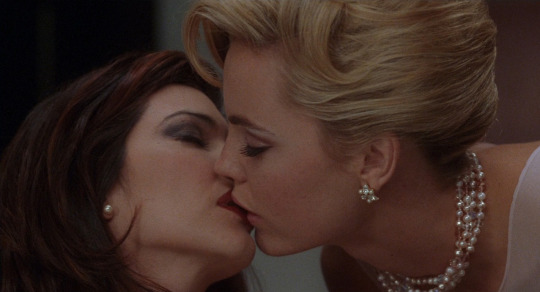
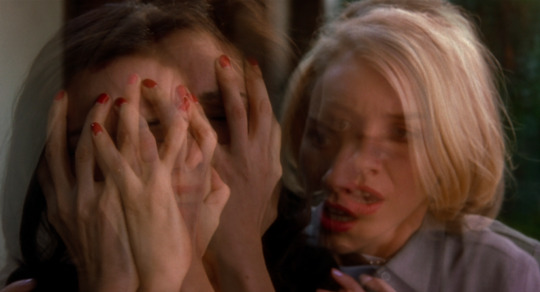
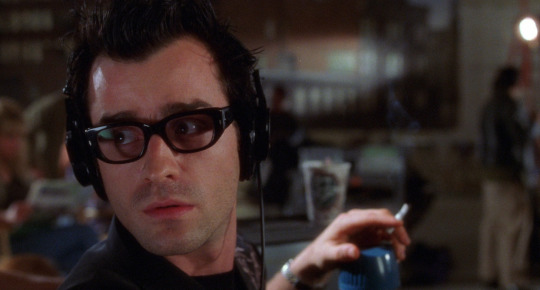
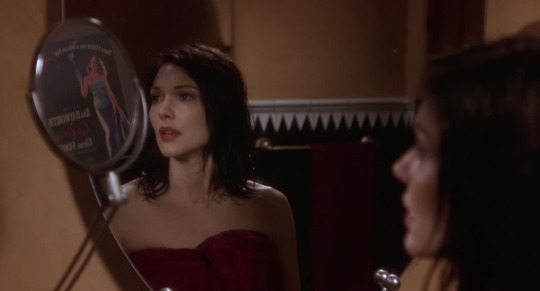
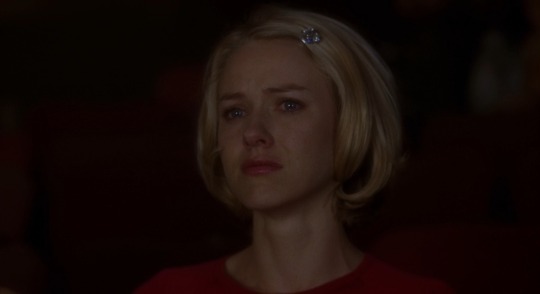
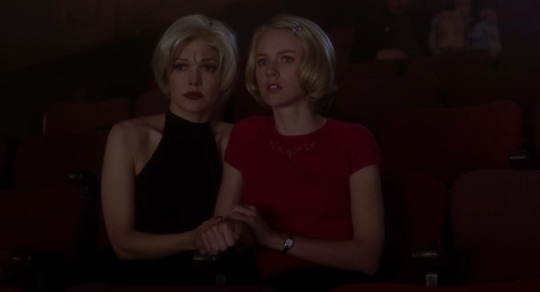
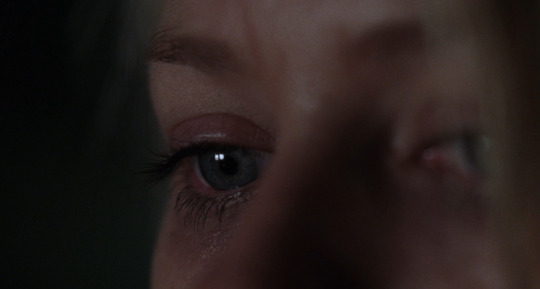
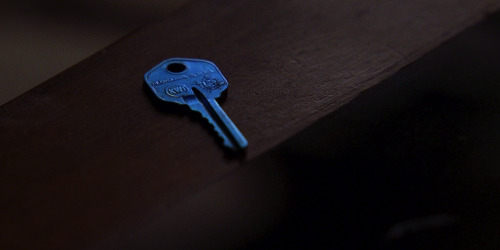
Mulholland Drive (2001) dir. David Lynch
Cinematography: Peter Deming
#mulholland drive#david lynch#peter deming#naomi watts#laura harring#justin theroux#melissa george#mark pellegrino#drama#thriller#mystery#movie#movies#film
78 notes
·
View notes
Text
Product Hunt Radio: Finding the world’s lost Einsteins and putting an end to aging
Product Hunt Radio: Finding the world’s lost Einsteins and putting an end to aging
In this episode of Product Hunt Radio I’m joined by two incredible people, Laura Deming and Daniel Gross, that have accomplished more before the age of 30 than most people have realized in a lifetime.
Laura grew up in New Zealand and came to San Francisco when she was only 12 years old to join a lab studying aging. She was accepted to MIT at 14 before leaving to form Longevity Fund, a venture…
View On WordPress
0 notes
Photo
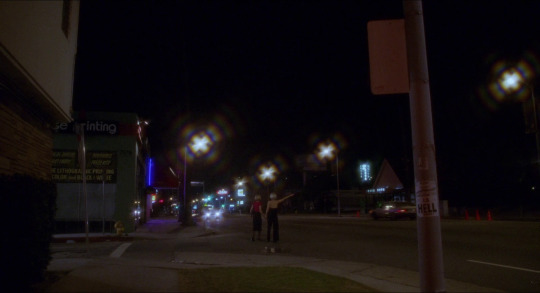
Mulholland Drive, directed by David Lynch, 2001.
2 notes
·
View notes
Text
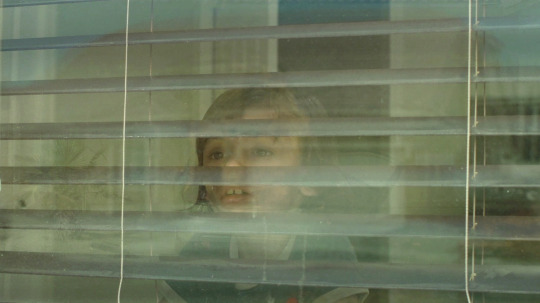

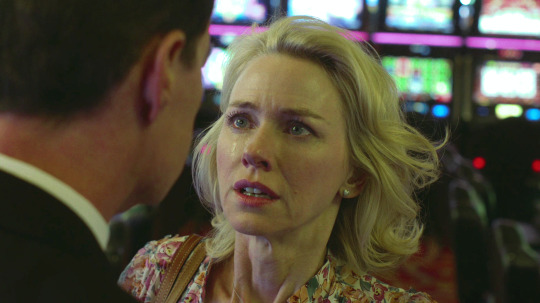
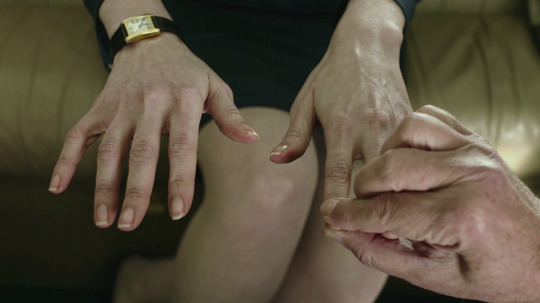
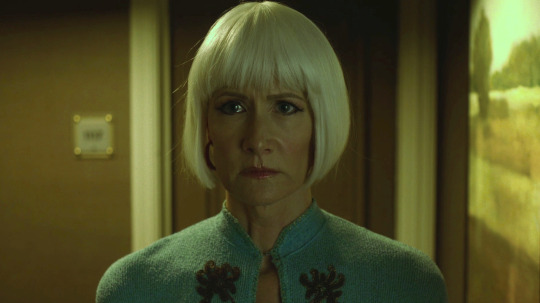
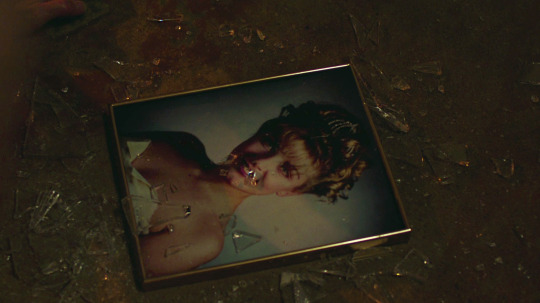
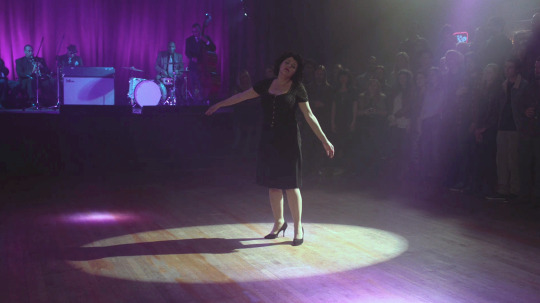
"You have to wake up. Wake up. Don't die. Don't die. Don't die."
Twin Peaks: The Return (2017)
#twin peaks#twin peaks the return#david lynch#cinematography#peter deming#american cinema#naomi watts#laura dern#sherilyn fenn
420 notes
·
View notes
Photo
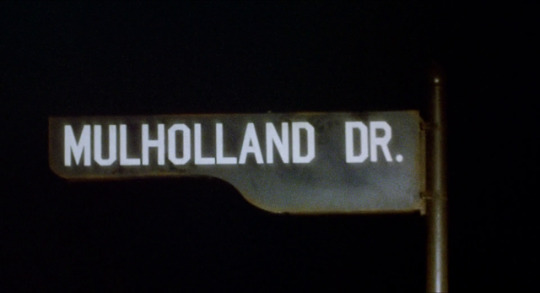
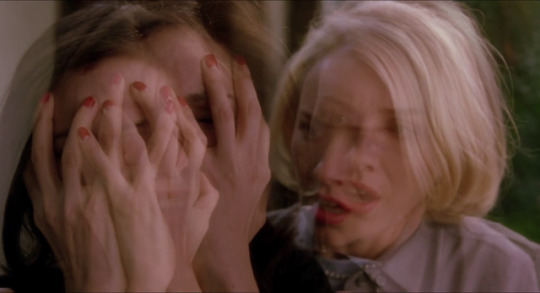
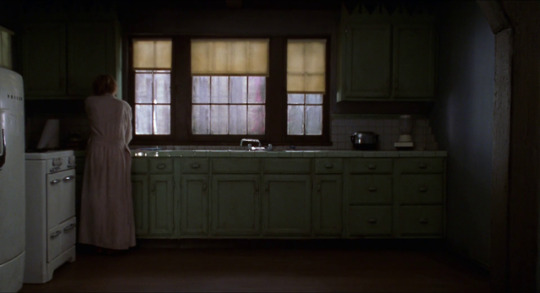
David Lynch's Mulholland Drive, 2001
Silencio...
DoP: Peter Deming
#threefilmframes#film frames#movie stills#david lynch#mulholland drive#mullholland dr#peter deming#naomi watts#laura harring#justin theroux#melissa george#cinema#movies#cinematography#cinephilia
345 notes
·
View notes
Text
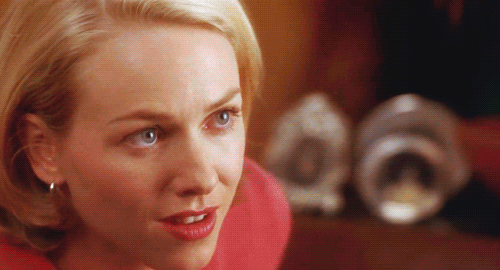
Mulholland Dr.
#mulholland drive#mulholland dr#david lynch#lynch#peter deming#angelo badalamenti#badalamenti#naomi watts#laura elena harring#laura harring#justin theroux#ann miller#robert foster#2001#2000s#00s#cultmovie
13 notes
·
View notes
Photo
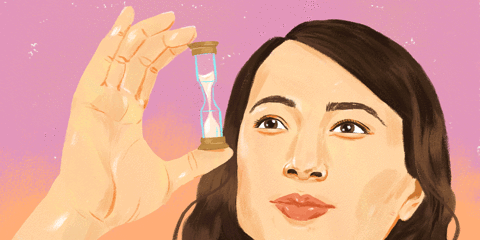
With every post, a smile, ت
0 notes
Photo










Mulholland Dr. (2001)
Directed by David Lynch Cinematography by Peter Deming
“Silencio...”
#mulholland drive#2001#david lynch#peter deming#naomi watts#laura harring#justin theroux#cinema#movie#film#still#frame#movie stills#movie frames#cinematography#screencaps#cinemabreak
1K notes
·
View notes